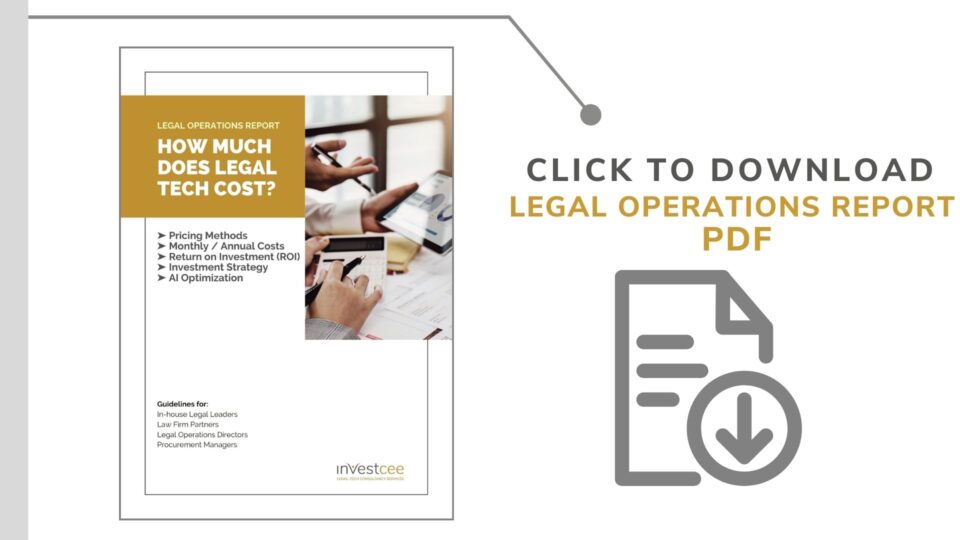Press time for the European Legal Technology Association (ELTA) – an organization we are closely affiliated with in Hungary and across the Central Eastern Europe (CEE). In its latest issue released in February 2020, The Legal Technologist featured ELTA Board Members’ and Ambassadors’ (including InvestCEE founder & CEO Orsolya Szabó) perspective on legaltech with a look back at 2019 and a forecast for 2020 – meaningful insights from the various European jurisdictions. Here’s to another exciting year for the European legaltech scene!
LegalTech in 2020: Forecast by the European Legal Tech Association
Given ELTA relies on a strong network of influential legal tech pioneers from all over Europe and beyond, insights by the Board Members and Ambassadors provided a diverse perspective on the state of legaltech across the continent. Contributors from the ELTA network looked back at 2019 to analyse the takeaways and provided forecasts for 2020 for their respective jurisdictions.
The February 2020 issue of The Legal Technolgist features the legaltech perspective from Bulgaria, Croatia, Finland, France, Germany, Greece, Hungary and CEE, Israel, Italy, Netherlands, Russia, Serbia, Spain, Sweden, and the United Kingdom.
The Legal Technologist feature of Hungary & CEE
The analysis and forecast featured in The Legal Technologist with respect to Hungary and the CEE region (page 15) referred back to the findings of the CEE LegalTech Report prepared by our team and released in November 2019. Last year, InvestCEE launched an independent research to determine and quantify the key players that enable digital transformation in the legal service industry across CEE. This report was the first study done by InvestCEE aimed to examine a new market carving out an innovative aspect of legal services, often referred to as newlaw.
The 2019 research showed the CEE legaltech market to be an early stage yet dynamically evolving sector. The following findings appeared as most prominent from our study:
- Looking at the local jurisdictions, the top contributors of the CEE region are Hungary, Estonia, Poland and the Czech Republic, jointly encompassing almost 70% of the legaltech startups in CEE.
- We grouped newlaw players in CEE into three main categories:
- startups or scaleups developing software tools for the legal industry at large (i.e., we found their product and service offering to be relevant across the CEE region, potentially even beyond);
- startups or scaleups developing software tools for a given local jurisdiction only (i.e., country-specific solutions); and
- innovative legal service providers that perform a range of tasks enabling the growth and expansion of the CEE newlaw ecosystem: studios and boutique firms offering consulting services for the more traditional players of the legal industry.
- Beyond software tools focused on legal service delivery, we identified a number of additional creative tools on the borderline of legaltech that we thought may be worth keeping in mind. While these software tools were not specifically targeted at the legal industry, they provide solutions for professional services generally and could be of interest to lawyers with a knack for innovation.
- Legaltech tools in CEE cover a whole range of tasks. The top categories we identified in the 2019 study were the following: document management, legal drafting automation and/or digital contracting; legal matter, time and/or workflow management; GDPR & data security; legal search & research; and access to justice.
- Law firms and corporate legal departments in CEE increasingly experiment with legaltech tools. Some local or regional law firms recognize the potential of new business models to transform the industry and engage with innovative service providers to develop collaborative solutions for clients.
By sourcing and learning to use the right tools, lawyers no longer need to search manually through contracts, case or matter files, and other legal or business databases for key information. Legaltech tools from CEE (and beyond) that help lawyers upskill and perform legal work better, faster and cheaper, will be particularly important not only to watch but also to implement going forward.
About The Legal Technologist
While legal technology is making an enormous impact on legal professions around the world, very little (if anything) is taught at university about the types of technology and how they are used. This magazine aims to give those at the junior end of their legal careers an understanding of how law and technology are converging.
The bi-monthly magazine looks at process improvement, legal innovation and implications on legal practice. It also includes interviews from those in the legal profession or those who support its growth. Looking at the modernisation of legal professions as a global phenomenon, The Legal Technologist also aims to publish articles from authors around the world.
Join our Smarter Legal newsletter!
Once a month, we email readers with legaltech tips, trends and advice to stay ahead of the legal innovation curve. Sign up to get it in your inbox!



